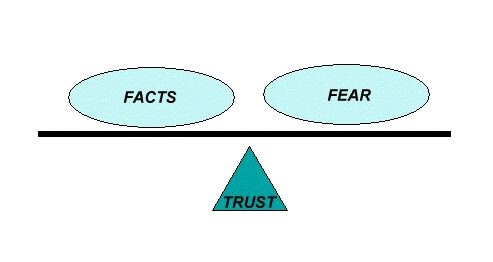Wednesday, December 21, 2005
IDEOLOGICAL STATE APPARATUSES
retrieved from Wikipedia (link):
Althusser held that it was necessary to conceive of how society makes the individual in its own image. Within capitalistsociety, the human individual is generally regarded as a subject endowed with the property of being a self-conscious agent. For Althusser, however, a person’s capacity for perceiving herself in this way is not innate. Rather, it is acquired within the structure of established social practices, which impose on individuals the role (forme) of a subject. Social practices both determine the characteristics of the individual and give her an idea of the range of properties they can have, and of the limits of each social practice. Althusser argues that many of our roles and activities are given to us by social practice: for example, the production of steelworkers is a part of economic practice, while the production of lawyers is part ofpolitico-legal practice. However, other characteristics of individuals, such as their beliefs about the good life or theirmetaphysical reflections on the nature of the self, do not easily fit into these categories. In Althusser’s view, our values, desires and preferences are inculcated in us by ideological practice, the sphere which has the defining property of constituting individuals as subjects through the process of interpellation. Ideological practice consists of an assortment of institutions called Ideological State Apparatuses (ISAs), which include the family, the media, religious organisations and the education system, as well as the received ideas they propagate [3]. There is, however, no one ISA which produces in us the belief that we are self-conscious agents. Instead, we learn this belief in the course of learning what it is to be a daughter, a schoolchild, black, a steelworker, a councillor, and so forth.
First thesis of Althusser on ideology is that "Ideology has no history"; the second one is that "Ideology has a material existence". "Ideas are material", as he had already said, which explain why he decides to complexify the notion of ideology by the concept of Ideological State Apparatuses (ISA) .
Despite its many institutional forms, the function and structure of ideology is unchanging and present throughout history. The first of Althusser's thesis on ideology states that "ideology has no history". All ideologies constitute a subject, even though he or she may differ according to each particular ideology. Memorably, Althusser illustrates this with the concept ofinterpellation. He uses the example of an individual walking in a street: upon hearing a police whistle, or any other form of hailing, the individual turns round and in this simple movement of her body she is transformed into a (guilty) subject. Althusser discusses the process by which the person being hailed recognizes herself as the subject of the hail, and knows to respond. Even though there was nothing suspicious about her walking in the street, she recognizes it is indeed she herself that is being hailed. This recognition is a mis-recognition (méconnaissance) in that it is working retroactively: a material individual is always-already an ideological subject. The "transformation" of an individual into a subject has always-already happened; Althusser acknowledges here a debt toward Spinoza's theory of immanence. That is to say, our idea of who we are is delivered by ideology. The second of Althusser's theses is that "ideology has a material existence":
Ideas have disappeared as such (insofar as they are endowed with an ideal or spiritual existence), to the precise extent that it has emerged that their existence is inscribed in the actions of practices governed by rituals defined in the last instance by an ideological apparatus. It therefore appears that the subject acts insofar as he is acted by the following system (set out in the order of its real determination): ideology existing in a material ideological apparatus, describing material practices governed by a material ritual, which practices exist in the material actions of a subject acting in all consciousness according to his belief. [4]
These material rituals may be compared with Bourdieu's concept of habitus, as the ISA may in a sense be approached withFoucault's disciplinary institutions. Althusser offers the example of the Voice of God - an embodiment of Christian religiousideology - instructing a person on what her place in the world is and what she must do to be reconciled with Christ. From this, Althusser draws the point that in order for that person to identify herself as a Christian, she must first already be a subject. We acquire our identities by seeing ourselves and our social roles mirrored in material ideologies.
Louis Pierre Althusser (October 16, 1918 - October 23, 1990) was a Marxist philosopher. He was born in Algeria and studied at the prestigious École Normale Supérieure in Paris, where he eventually became Professor of Philosophy. He was a leading academic proponent of the French Communist Party and his arguments were a response to multiple threats to the ideological foundations of that socialist project. These included both the threat from an empiricism which was beginning to invade Marxist sociology and economics, and a threat from humanistic and democratic socialist orientations which were beginning to corrode the purity of the European Communist Parties. Althusser is commonly referred to as a Structural Marxist, although his relationship to other schools of French structuralism is not a simple affiliation.(link)
Anything you do or say may be used against you or others...part of your speech may have been influenced by the Ideological State Apparatuses, therefore it's partially political and philosophic propaganda.
retrieved from Wikipedia (link):
Althusser held that it was necessary to conceive of how society makes the individual in its own image. Within capitalistsociety, the human individual is generally regarded as a subject endowed with the property of being a self-conscious agent. For Althusser, however, a person’s capacity for perceiving herself in this way is not innate. Rather, it is acquired within the structure of established social practices, which impose on individuals the role (forme) of a subject. Social practices both determine the characteristics of the individual and give her an idea of the range of properties they can have, and of the limits of each social practice. Althusser argues that many of our roles and activities are given to us by social practice: for example, the production of steelworkers is a part of economic practice, while the production of lawyers is part ofpolitico-legal practice. However, other characteristics of individuals, such as their beliefs about the good life or theirmetaphysical reflections on the nature of the self, do not easily fit into these categories. In Althusser’s view, our values, desires and preferences are inculcated in us by ideological practice, the sphere which has the defining property of constituting individuals as subjects through the process of interpellation. Ideological practice consists of an assortment of institutions called Ideological State Apparatuses (ISAs), which include the family, the media, religious organisations and the education system, as well as the received ideas they propagate [3]. There is, however, no one ISA which produces in us the belief that we are self-conscious agents. Instead, we learn this belief in the course of learning what it is to be a daughter, a schoolchild, black, a steelworker, a councillor, and so forth.
First thesis of Althusser on ideology is that "Ideology has no history"; the second one is that "Ideology has a material existence". "Ideas are material", as he had already said, which explain why he decides to complexify the notion of ideology by the concept of Ideological State Apparatuses (ISA) .
Despite its many institutional forms, the function and structure of ideology is unchanging and present throughout history. The first of Althusser's thesis on ideology states that "ideology has no history". All ideologies constitute a subject, even though he or she may differ according to each particular ideology. Memorably, Althusser illustrates this with the concept ofinterpellation. He uses the example of an individual walking in a street: upon hearing a police whistle, or any other form of hailing, the individual turns round and in this simple movement of her body she is transformed into a (guilty) subject. Althusser discusses the process by which the person being hailed recognizes herself as the subject of the hail, and knows to respond. Even though there was nothing suspicious about her walking in the street, she recognizes it is indeed she herself that is being hailed. This recognition is a mis-recognition (méconnaissance) in that it is working retroactively: a material individual is always-already an ideological subject. The "transformation" of an individual into a subject has always-already happened; Althusser acknowledges here a debt toward Spinoza's theory of immanence. That is to say, our idea of who we are is delivered by ideology. The second of Althusser's theses is that "ideology has a material existence":
Ideas have disappeared as such (insofar as they are endowed with an ideal or spiritual existence), to the precise extent that it has emerged that their existence is inscribed in the actions of practices governed by rituals defined in the last instance by an ideological apparatus. It therefore appears that the subject acts insofar as he is acted by the following system (set out in the order of its real determination): ideology existing in a material ideological apparatus, describing material practices governed by a material ritual, which practices exist in the material actions of a subject acting in all consciousness according to his belief. [4]
These material rituals may be compared with Bourdieu's concept of habitus, as the ISA may in a sense be approached withFoucault's disciplinary institutions. Althusser offers the example of the Voice of God - an embodiment of Christian religiousideology - instructing a person on what her place in the world is and what she must do to be reconciled with Christ. From this, Althusser draws the point that in order for that person to identify herself as a Christian, she must first already be a subject. We acquire our identities by seeing ourselves and our social roles mirrored in material ideologies.















































